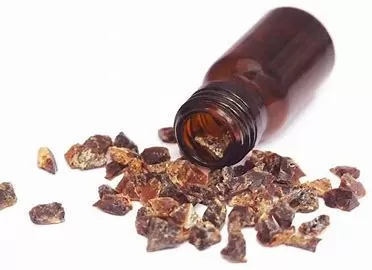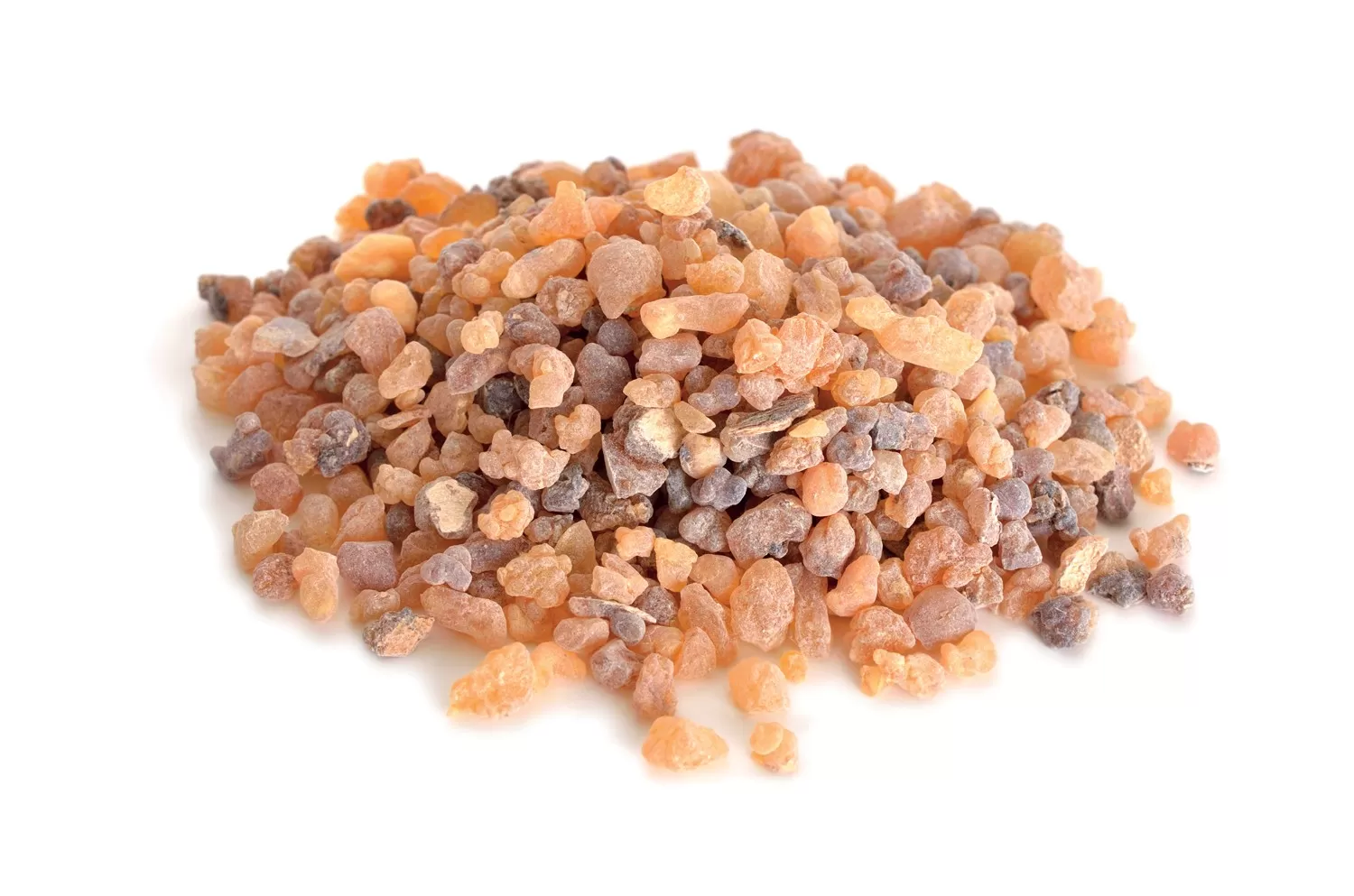- 0086-571-85302990
- sales@greenskybio.com
Can you take turmeric and boswellia together?
2025-03-24
Turmeric (Curcuma longa) and Boswellia (Boswellia serrata) have long stood as staples within holistic and traditional medicine, both revered for their potent anti-inflammatory and health-promoting properties. Originating from Ayurvedic and other ancient medical systems, these natural remedies are increasingly sought after in modern wellness routines to address chronic conditions such as arthritis, digestive issues, and joint pain. Yet, as health-conscious individuals explore these remedies, many wonder whether turmeric and Boswellia can be safely taken together and whether their combined benefits might enhance overall health outcomes. Let us take a deeper look into the science, potential benefits, and considerations associated with using these two supplements in tandem.
Understanding Turmeric and Boswellia: The Basics
Turmeric is best known for its active compound, Curcumin, which is responsible for much of its therapeutic properties. Curcumin is a powerful antioxidant and anti-inflammatory agent that has been widely studied for its ability to reduce inflammation, alleviate pain, and promote overall health. Turmeric has also been associated with benefits for digestive health, immune system support, brain function, and heart health.
Boswellia, often referred to as Indian frankincense, is derived from the resin of the Boswellia tree. Its active compounds, called boswellic acids, possess exceptional anti-inflammatory properties. Boswellia has been acclaimed for its ability to reduce inflammation in joints, support healthy cartilage, and alleviate chronic pain related to conditions such as osteoarthritis and rheumatoid arthritis. It is also known for positive effects on respiratory health and potential benefits in autoimmune disorders.
Both turmeric and Boswellia are widely available as supplements in powder, capsule, or tincture form, making them accessible for those seeking natural alternatives to conventional medicine.
Can Turmeric and Boswellia Be Taken Together?
The short answer is yes, turmeric and Boswellia can be safely taken together. In fact, many supplement manufacturers intentionally combine these two powerful herbs into a single product due to their complementary properties. While turmeric excels at reducing overall inflammation at the cellular level, Boswellia is particularly effective at targeting enzyme activity associated with inflammatory responses, such as blocking 5-lipoxygenase (5-LOX), an enzyme linked to conditions like arthritis and asthma.
By addressing inflammation through slightly different mechanisms, the combination of turmeric and Boswellia may provide enhanced benefits for managing pain, improving joint health, and reducing symptoms of chronic inflammatory conditions. This synergistic effect makes the pairing particularly appealing for those with arthritis, autoimmune disorders, or other issues involving inflammation.
Potential Health Benefits of Combining Turmeric and Boswellia
Enhanced Joint Health and Pain Relief
Inflammation is a primary factor in joint pain and stiffness common in conditions such as osteoarthritis and rheumatoid arthritis. Research has shown that both turmeric and Boswellia have the ability to reduce inflammation in the joints and surrounding tissues. Combined, they may provide faster and more effective relief for those struggling with chronic pain or mobility issues.
Improved Mobility and Quality of Life
The pairing of turmeric and Boswellia has been shown to improve mobility in individuals suffering from arthritis or other joint disorders. Together, they may help protect joint tissues, reduce swelling, and support physical activity, ultimately enhancing quality of life.
Better Digestive Health
Both turmeric and Boswellia have long been used to support gastrointestinal health. Turmeric helps regulate digestion, promote gut lining integrity, and prevent inflammation in the digestive tract. Boswellia, on the other hand, has been studied for its ability to reduce symptoms in conditions such as inflammatory bowel disease (IBD) and irritable bowel syndrome (IBS). Together, they may offer added relief for those dealing with digestive issues.
Systemic Anti-Inflammatory Effects
Chronic low-grade inflammation has been linked to a wide range of health issues, including diabetes, cardiovascular disease, and neurological disorders. When taken together, turmeric and Boswellia provide systemic anti-inflammatory effects, contributing to overall wellness and reducing the risk of chronic disease.
Boosted Immune Function
Both turmeric and Boswellia are known for supporting the immune system. Their antioxidant and anti-inflammatory properties may help regulate immune response, making the combination valuable for individuals dealing with autoimmune conditions.
How to Take Turmeric and Boswellia Safely
While turmeric and Boswellia are generally safe for most individuals, it is important to follow proper dosing guidelines and consult a healthcare provider if you have underlying medical conditions, take other medications, or are pregnant or breastfeeding.
Dosage: To maximize the benefits, follow the recommended dosages for each herb as indicated on the product label or by your physician. Typically, daily doses range between 500–2,000 mg for turmeric and 300–800 mg for Boswellia, depending on the supplement's concentration and formulation.
Bioavailability: Curcumin, the active compound in turmeric, has low bioavailability unless combined with a bioenhancer like Black Pepper Extract (piperine) or fat-based carriers. Many supplements already include these enhancers. Check the formulation for maximized absorption.
Timing: Turmeric and Boswellia can be taken together in the morning or evening, depending on your health goals. Splitting the dosage into two administrations (e.g., morning and night) may provide sustained benefits throughout the day.
Interactions: Turmeric and Boswellia may interact with anticoagulants and some medications related to immune suppression. If you are managing a complex health condition, consult with a healthcare provider about introducing these herbs.
Precautions and Potential Side Effects
While these supplements are well-tolerated for most users, mild side effects such as stomach discomfort, dizziness, or allergic reactions may occur in rare cases. Individuals with gallbladder disease, low blood pressure, or bleeding disorders should be especially cautious, as turmeric may exacerbate these conditions. Boswellia, while safe for most, may cause mild irritation to the gastrointestinal tract.
Conclusion
Turmeric and Boswellia are two potent anti-inflammatory agents that complement each other when taken together. Their combined benefits have made them an increasingly popular pairing for alleviating joint pain, improving mobility, and boosting systemic health. As a safe and natural alternative, they offer hope to those seeking relief from chronic inflammation and improved overall wellness.
With careful consideration of dosage and timing, and consultation with a healthcare professional when needed, turmeric and Boswellia can be a valuable addition to your health routine. Their harmonious combination reflects the synergy between ancient wisdom and modern science, paving the way for natural solutions to inflammation and its associated issues.













